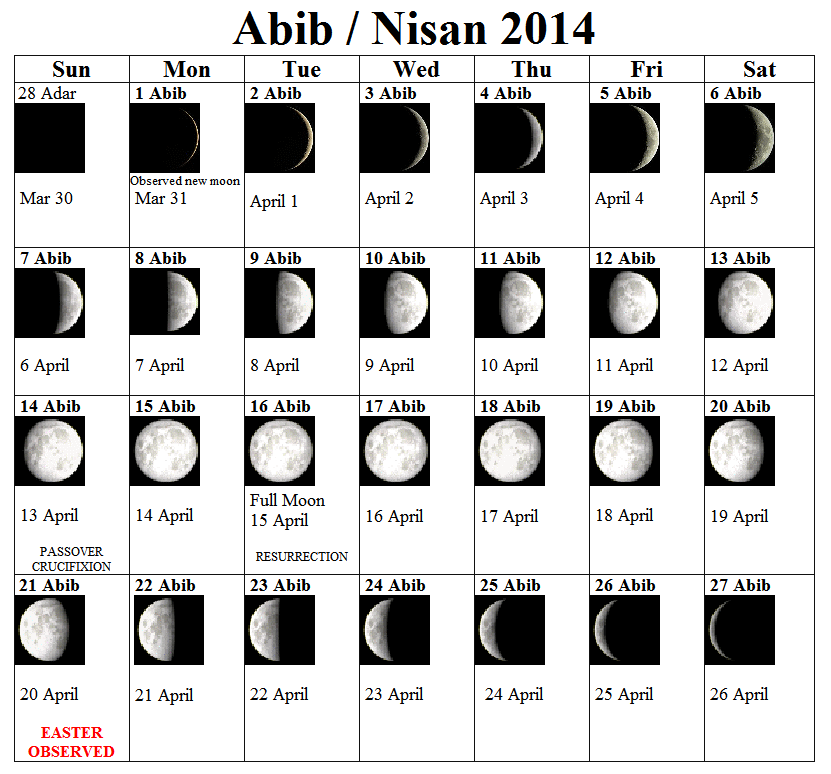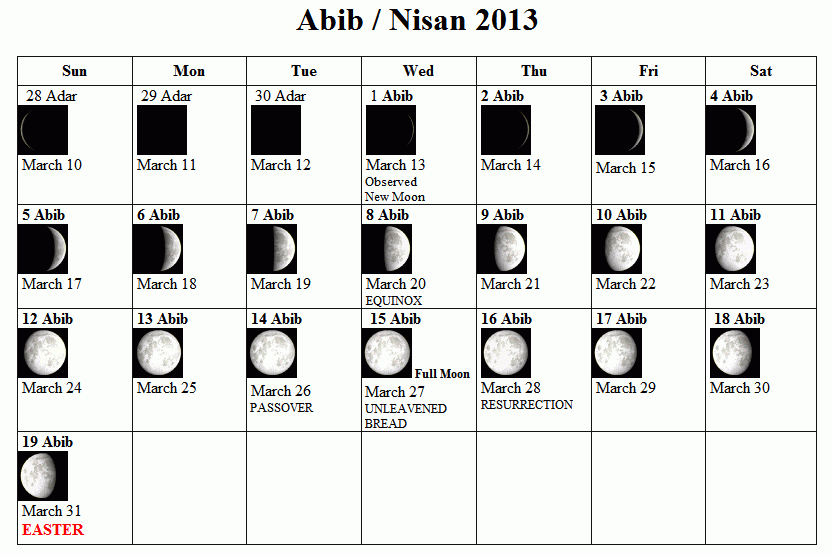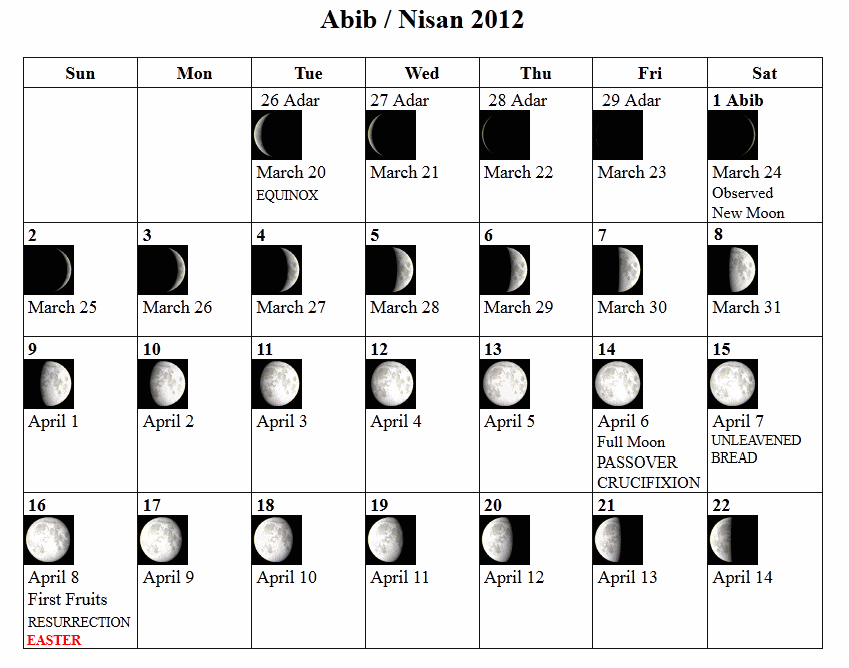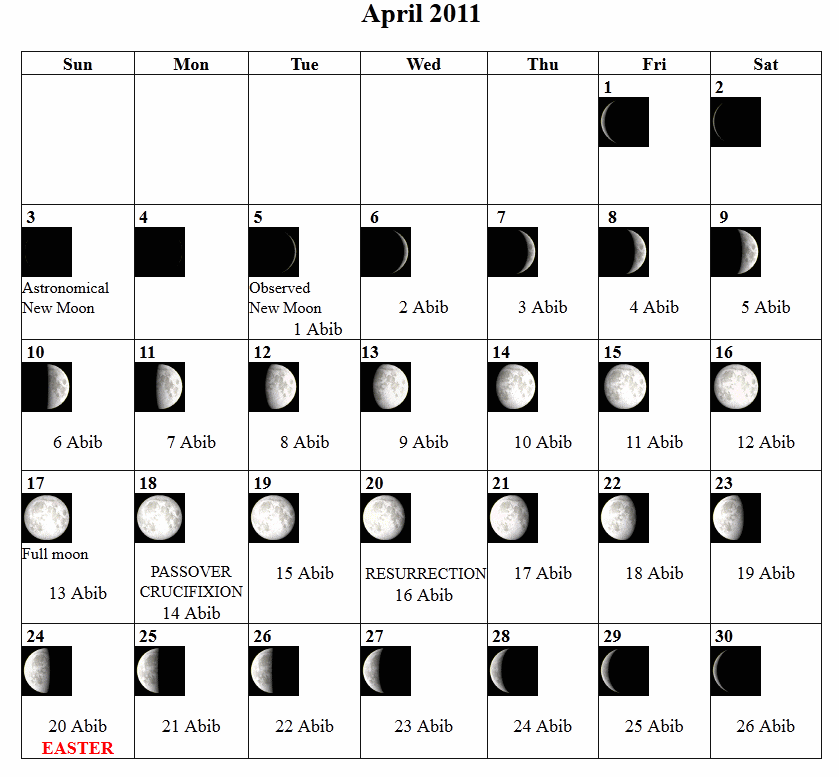A curious contradiction happens nearly every year. Virtually all the Christian world will observe the death and resurrection of Jesus Christ in unison, on the first Sunday after the first full moon after the Spring Equinox as decreed by the Council of Nicea in 325 A.D. However, if this paschal full moon occurs on a Sunday, Easter is then moved to the next Sunday. The Council of Nicea also decided that the Christian Easter shall never precede or coincide with the Jewish Passover, but must always follow it, a rule still observed by the Eastern Orthodox Church, but not the Western Church. The Eastern Orthodox church also still uses the Julian calendar to calculate Easter, and so frequently does not agree with the Western Church on dates.This presents a very interesting situation, since the Protestants generally will subscribe to the motto of Sola Scriptura, the Bible only for doctrine, yet the Catholic affirms the authority of Church Tradition.Now if you strictly follow the Bible as your guide as to when to observe Passover, you would ALWAYS be observing the crucifixion in the middle of the biblical month, very close to the full moon. This is because Passover the Bible tells us, is celebrated on 14 Abib/Nisan, the middle of the 29.5 day lunar cycle (the synodic month).
Deut 16:1 Observe the month of Abib, and keep the passover unto the Lord thy God: for in the month of Abib the Lord thy God brought thee forth out of Egypt by night. Lev 23:5 In the fourteenth day of the first month at even is the Lord's passover.
The biblical month will have either 29 or 30 days, and begins with the observation of the new moon (crescent visible), and ripening barley. Because Passover is specifically designated as the 14th day of the 1st month, Passover is always in close proximity to the full moon. Ripened barley is required on 16 Nisan/Abib for the waving of first fruits (Lev. 23:10-11). If the barley is too immature at the sighting of the new moon, a 2nd Adar leap 13th month is declared, and the month of Nisan/Abib is delayed to the next month. The following calendars illustrate the difference between the biblical determination of Passover and the tradition of Easter Sunday.
In 2015, ripening barley was found March 15th, and the new moon was sighted at sunset beginning March 22nd, making it the first day of Abib / Nisan, which puts Passover (14 Nisan), on Saturday, April 4th, and first fruits/Omer/resurrection day (16 Nisan), on Monday, April 6th. Easter will be observed Sunday, April 5th.
For 2014, ripening barley was found in Israel on March 24th-25th, and the new moon was observed March 31st, which began the month of Abib/Nisan. The biblical Resurrection day (First Fruits) will be Tuesday, April 15th, the day of the full moon, while Easter will be observed Sunday, April 20th.

|

For 2013, ripening barley was found in Israel on March 11th, 29 Adar, but the new moon was not sighted until March 13th, which begins the month of Abib/Nisan. The biblical Resurrection day (First Fruits) will be Thursday, March 28th, the day after the full moon, while Easter will be observed March 31st.

In 2012, the observed new moon after sunset ending Friday, March 23, began Nisan/Abib, as ripened Barley was reported found in Israel that day and the day before. So 1 Nisan of 2012 is Saturday, March 24. Passover, 14 Nisan and the full moon falls in 2012 on Friday, April 6, and 16 Nisan, the First Fruits / Resurrection, on Sunday, April, 8th, coinciding this year with Easter as observed by Protestants and Western Catholic Christianity.

For 2011, the new moon of March 6th began the 13th
month of Adar II, as the barley was not ripened. Abib Barley was
reportedly found in the Jordan
valley on March 22, the day after the equinox, and the new moon was
seen in Israel after the sunset that began April 5th, the first day of
the new month of Nisan/Abib. Passover, 14 Nisan/Abib, was
therefore on Monday, April 18th, and the biblical resurrection day, 16
Nisan/Abib, was on Wednesday, April 20th. Easter however, as set by the
unbiblical tradition of Nicea, was observed by most Christians on
Sunday April 24th.

Now isn't this a remarkable contradiction: "Bible Only" Protestantism has clearly cast aside the Bible as their teacher on this matter, and will celebrate "Easter" always on Sunday, a day that has no biblical foundation. Aren't Protestants, in practical effect, openly declaring they are actually followers of Catholic Tradition, and care nothing for the instructions of the inspired word of God, Scripture, which they claim to be their only guide? Isn't this a rather transparent case of hypocrisy on the part of "Bible Only" Protestants? Aren't they really declaring every Easter (and Pentecost), we are Catholics and prefer Tradition over God's word! ?
Indeed they are! The New Testament commemoration of Christ's resurrection is the baptism of believers by full immersion:
Rom 6:3 Know ye not, that so many of us as were baptized into Jesus Christ were baptized into his death?
Rom 6:4 Therefore we are buried with him by baptism into death: that like as Christ was raised up from the dead by the glory of the Father, even so we also should walk in newness of life.
Rom 6:5 For if we have been planted together in the likeness of his death, we shall be also in the likeness of his resurrection:
Rom 6:6 Knowing this, that our old man is crucified with him, that the body of sin might be destroyed, that henceforth we should not serve sin.
Rom 6:7 For he that is dead is freed from sin.
Rom 6:8 Now if we be dead with Christ, we believe that we shall also live with him:
Rom 6:9 Knowing that Christ being raised from the dead dieth no more; death hath no more dominion over him.
Rom 6:10 For in that he died, he died unto sin once: but in that he liveth, he liveth unto God.
Rom 6:11 Likewise reckon ye also yourselves to be dead indeed unto sin, but alive unto God through Jesus Christ our Lord.
